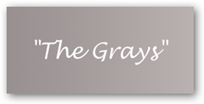We have some very odd terminology out there today and it seem that anything that requires analytics or some use of technology is being called a “science”. I find this odd as I don’t see us and businesses out splitting atoms but with the way the terminology is marketed today you would think that’s what we are doing half the time (grin). It’s good marketing talk and we are full of it today, whether it makes sense or not, if it sells, then do it.
In healthcare anymore with the complexities that are built with health insurance there are very few things we can really count on and that’s the big problem. Even anymore when you are seeing your doctor as an example and need let’s say some type of surgery, it’s almost to the point of where the doctor has to put you as the patient on hold or have you wait “while he/she goes off to split an atom with your insurance company” today. Hey, and if we are doing that, then golly gee we can call it science now:)
I was looking at this website from Verisk Analytics and they call themselves an analytical  company but they specialize in the “science of risk” and even trademark it. Is this really science or is it a new marketing buzz? Risk assessment has been around for a long time and has been part of the insurance business for as long as I can remember. You may or may not have heard of the company but they are competitors to the United Healthcare Optum/Optum Insights business.
company but they specialize in the “science of risk” and even trademark it. Is this really science or is it a new marketing buzz? Risk assessment has been around for a long time and has been part of the insurance business for as long as I can remember. You may or may not have heard of the company but they are competitors to the United Healthcare Optum/Optum Insights business.
I was looking further into the website too and saw the same old stuff again about the percentage of chronic conditions that drive up healthcare. In the last few years, healthcare has jumped through all kinds of hoops and yes there are savings to be had but I think we are dreaming on here with what the marketing folks put out and the end up hammering down on consumers to conform. Sure I’m not against programs that help folks (unless they are selling their data) at all, but I look at the levels of so many different algorithms (that’s software or web services) and how in the world are healthcare facilities going to afford to keep buying just a news shade of an algorithm or an old algorithm with a few new queries?
I guess this is where the “science” comes in as if you use that word versus analytics or software, it somehow gets a sense of urgency tacked on, does it not. So many of these wellness programs now are getting called some type of science with getting people together that have similarities with a habit, an illness or just thoughts. You know 12 step programs have been doing that for years except we use computers to track and sell the behavioral information now. Part of the problem too is with technology as people don’t communicate as people used to do so kind of ironic that we have to use technology to get people to talk like humans to each other again.
So I guess the question really is “what is science” anymore? Of course we know real science still exists and some research takes years and years to reach a point to where significance is found. Technology of course is a big help there, especially with research in genomics as major breakthroughs have come through. But coming back to day to day analytics, cost and risk, does this really need to be called “science”? Here’s a quite clip on modern day financial science, pay attention here as he does a very simple example of non linear math used in science with 100 bottles of beer, so you can see it’s never going to be 100 bottles at all. (Paul Wilmott)
Do we have double, triple, quadruple the amount of analytics now because we call it “science”? It just seems like when anything gets complex, we start calling it a “science”. I thought the name “data scientist” was a little odd too but that’s not in my power to create name and categorize but is it science?
“Data Scientists”– An Oxymoron? Is Finding the Value in Data Bases Queried Together in the Business World To Make Money Actually Science?
I do wonder because there’s a 12 week program that says it can crank out a “data scientist” in just 12 weeks for you company and in normal science there’s a bit more than 12 weeks involved with education to become a scientist.
Data Scientist Jobs About To Be Commoditized–Online School Says They Can Crank One Out For Your Company In Just 12 Weeks To Work With Your “Big Illusive Data”…
We seem to be of the mind set that we can create software and toss as a consumer and say “there go fix yourself” and of course we are seeing a ton of failures as this is not science, it code written by a developer that wants to make some money and occasionally people like it (especially if it’s a game) and sometime they don’t. I read everyday about someone trying to figure out how to get consumers to engage and they are folks frustrated as few or little use or like their software. Some one said not too long ago that “software is going to eat up the world” and I think we are getting close as I’m finding myself, one who likes and used to write software, running for cover with some of this.
Sure we need creative minds but for some reason folks seem to think that every stick of code has value, well it doesn’t and a lot of the stuff I wrote got dumped too. I said a little over a year ago that half of the analytics created were going to be a waste of investment but I thought it would take longer but it sure seems like that’s already happening.
So what’s the next move in this arena, start calling Health Insurance a “science” as it’s complexities grow and when are we going to come out of “The Grays” with some of this? I know there’s a lot of “nutty” stuff that comes along with innovation and there always will be but the tone seems to have changed in the fact that people can’t tell the difference  between some of the “nutty” virtual world stuff and the real world.
between some of the “nutty” virtual world stuff and the real world.
This somewhat unwelcomed phenomena that exists today…”The Grays”….
Virtual Worlds, Real World We Have A Problem And It’s A Big One With A Lot of Gray Areas Finding Where The Defining Lines Exist, Confusing Many With A Lot of Weird Values And Strange Perceptions…
So I figured someone will determine health insurance a “science” next (grin). Gosh knows the insurers are all in there grasping at every single stick of data they can get their hands on and they too are sucked in a bit, but if they can take and twist the context for profit I’m sure they do. Here’s another clip from Paul Wilmott #1 Quant in the world and keep in mind insurers are hiring large numbers of quants to model just like the financial markets so his words fit here too.
“Economists think that they are scientists so they come up with what they call laws, they are not laws”…”it’s just a frame work or an idea or theory that may work or may not work, but they think they are laws based on their theories with all kinds of nonsense coming out of it”…
So after listening to Dr. Wilmott, what’s next I say, what type of theories will economists dream up next? Will it be health insurance Science? By the way if you liked the video clips, watch the entire video, it’s #2 in my footer and always there. BD
In the insurance business, it's all about identifying and pricing risk. The better able you are to figure out whether a claim will be filed, the better able you are to price insurance for a profit. Verisk's data mining solutions do that every day for all 100 of the largest U.S. property & casualty insurers. Those 100 insurers make up 85% of the $540 billion in P&C premiums written last year.
Verisk's roots stretch back to 1971, when a consortium of insurers decided they could get better answers cheaper by combining their data analysis efforts. Over the years, savvy acquisitions and product development expanded Verisk's product offering to include underwriting, claims management, compliance, and portfolio analysis, too. The combination of more services and a top-shelf customer base has allowed Verisk's insurance business to grow by a compounded 9% annually over the past decade.
Despite a short history of serving the health care industry, 232 health care payers have already signed on with Verisk, including 9 of the top 10 insurance plans.
Another 26 health care providers, including physician networks, as well as 61 employers, have inked deals with Verisk to help them with claims, risk modeling, Medicare Advantage risk adjustment, and quality auditing.
Of course, Verisk isn't the only one trying to work with health care companies. Verisk competes directly with United Healthcare's (NYSE: UNH ) OptumInsight, a company that offers a suite of analytic and consulting services to health care players.
United's position as the largest U.S. health insurance company has given OptumInsight immediate cache, helping OptumInsight build a backlog north of $5.5 billion exiting 2013. United expects $2.7 billion of OptumInsight's backlog will be realized this year, of which roughly $1 billion is tied to other United companies. Even considering the inter-business sales, OptumInsight is still arguably Verisk's stiffest competitor in the health care sector.



0 comments :
Post a Comment